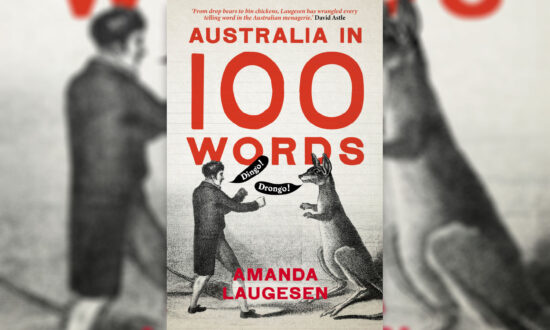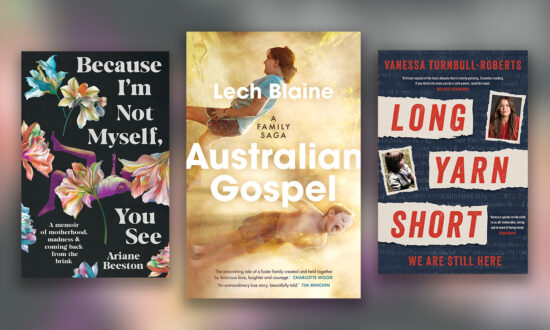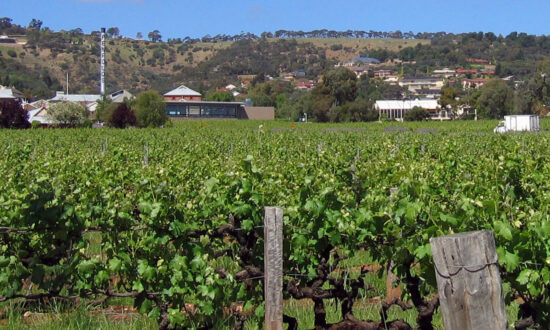This week marked the tenth anniversary of Julia Gillard’s national apology to the Australians whose lives were marked by forced adoptions between 1950 and 1975. And last weekend, I stood in a sun-drenched alleyway in Mile End, drinking from a plastic cup as planes streaked noisily overhead, and chatted about adoption to a couple of middle-aged women in hot pink.
We were there for the launch of Crazy Bastard, a memoir of forced adoption by Adelaide journalist Abraham Maddison, formerly known by his adopted name, Derek Pedley (under which he was an Advertiser reporter and a true-crime author). It’s a story of a life shaped by not fitting, feeling alienated and not enough – even before then-Derek realised as a teenager that he was adopted, rifling through his parents’ things and discovering his adoption paperwork.
He tells of finding his biological mother, Joye, and losing her again. Of his decades-long obsession with a classmate who never returned his interest. Of becoming a journalist, then a true-crime writer. And of a disastrous first marriage that ended with him homeless and hitting rock bottom, then the “fairy tale” of finding his now-wife Shannon, a historian who helped him research this book.

Abraham Maddison signs copies of his books – new memoir Crazy Bastard and true-crime book Dead By Friday – while his step-daughter looks on. Photo: Wakefield Press
Oh, and there are the addictions and the multiple institutionalisations. Most of all, there’s an excoriating honesty, a deep-dive to the centre of his being to excavate the truth about who he is, how his adoption made him that way. It is, as Maddison describes it, a journalist-as-detective story.
In the autumn sun, standing between an ivy-covered wall and a trestle table of food, the hot-pink women talked about how much they’d recognised their own, very different, experiences of growing up adopted in the book’s pages. I squinted through the glare and nodded. I was there because I’d edited the book, so I had an inkling of what they were talking about.
And then, not long after I’d served myself a paper plate of fruit supplied by Abe’s wife, one of the women appeared at the podium outside the Wakefield Press warehouse and leaned towards the microphone. I realised she was Minister for Human Services Nat Cook, who found out she was adopted aged 29, and was here to officially launch the book.
“You have created a beautiful piece of literature that describes and articulates the experience a fellow adoptee has had and experienced through their life,” she said, addressing herself to Abe as sirens wailed in the background, probably on their way to the nearby Royal Adelaide Hospital. “You know. You look up at the noses of the adults around you in your formative years, and you think, there’s no nose like my nose.”
During the time addressed by Gillard’s apology, said Cook, single mothers were taboo – to be denied. And so their babies were spirited away, placed in families. And the mothers were told to resume their lives as if it had never happened.
***
“Now I know that some people have always moved freely between the reality that is plain to see and its hinterlands: the institutions, the orphanages, the places where things happen between closed doors and stay hidden,” writes journalist Christine Kenneally in her extraordinary new book, Ghosts of the Orphanage (Hachette), an exposé of 20th-century orphanages, the hard-to-believe abuses that routinely happened to institutionalised children, and how it was allowed to happen. How we somehow didn’t know – or refused to know.
Kenneally admits that, like the son of one of the survivors told her he did, she often struggled to believe what she was being told: not because she didn’t trust her interview subjects, but because their stories seemed outside reality.
Ghosts of the Orphanage grew from an incredible longform investigative piece Kenneally wrote for BuzzFeed several years ago, about one notorious Catholic orphanage in the US, St Joseph’s, where a “survivors” group had formed to share memories and mount a lawsuit. Children were sexually abused, but also routinely forced to eat their own vomit, beaten, locked in closets for days, and encouraged to bully each other. They were taught to swim by being thrown into a lake – some are reported to have drowned in the process. And there are other alleged, witnessed deaths, including a boy thrown from a window, a baby held by the ankles and swung against a desk until it stopped crying.
 Kenneally deftly shows, by introducing us to the former orphans as fully formed characters, that while each of these acts is horrific, what’s truly horrifying is the cumulative effect of them, and the way orphanage residents were treated as less than human: they were even referred to by numbers, rather than names. “As awful as the abuse was, it was the absence of affection that was most devastating,” former residents of a Ballarat orphanage said.
Kenneally deftly shows, by introducing us to the former orphans as fully formed characters, that while each of these acts is horrific, what’s truly horrifying is the cumulative effect of them, and the way orphanage residents were treated as less than human: they were even referred to by numbers, rather than names. “As awful as the abuse was, it was the absence of affection that was most devastating,” former residents of a Ballarat orphanage said.
These things were done to “orphans” because no one was watching. And because their lives were contained in these institutions, they had even less frame of reference by which to judge their experience than a child experiencing family violence. (Oh, and why did I say “orphans”? Because the majority of the children in these institutions had parents, who placed them there for a variety of reasons, including an inability to care for them.)
While St Joseph’s is the central focus of the book, Kenneally ranges more widely, with examples from all over the world, including Australia. She found “a massive network, thousands of institutions, millions of children connected to one another if not by an explicit system of transport or communication, then by the overwhelming sameness of their experiences: the same schedules, the same cruelty, the same crimes committed in the sane fashion, then covered up by the same institutions”.
In these places, with little transparency to the outside world, concludes Kenneally, “there are only so many grooves along which human pathology and human tragedy run”. I’m surprised I haven’t seen more about this truly exceptional book – which is not just a superlative work of investigative journalism, but an engrossing read. (Unsurprising, as Kenneally, who seems better known in the US than her native Australia, has been published in the New York Times and New Yorker, among other places.) I carried this book everywhere until I finished it, and was annoyed when I had to put it down to start work in the morning. I can’t recommend it more highly.
***
What if you don’t want to delve into the world of adoptees and institutionalised children this month?
 Other books on my to-read list include Resistance (Text), a novel of stories within stories by Melbourne writer Jacinta Halloran, whose first novel, Dissection, about a GP falling apart after making a consequential mistake, I loved (as did Helen Garner). Resistance has been compared to Rachel Cusk’s Outline trilogy: a family therapist, Nina, meets regularly with a supervisor to support her in a difficult case – two parents mandated to see her after they stole a car and disappeared into the outback with their children, whose safety Nina is now concerned for. (Okay, this one also involves at-risk children.)
Other books on my to-read list include Resistance (Text), a novel of stories within stories by Melbourne writer Jacinta Halloran, whose first novel, Dissection, about a GP falling apart after making a consequential mistake, I loved (as did Helen Garner). Resistance has been compared to Rachel Cusk’s Outline trilogy: a family therapist, Nina, meets regularly with a supervisor to support her in a difficult case – two parents mandated to see her after they stole a car and disappeared into the outback with their children, whose safety Nina is now concerned for. (Okay, this one also involves at-risk children.)
And I relished Marina Benjamin’s A Little Give: The Unsung, Unseen, Undone Work of Women (Scribe), an exquisite collection of interlinked essays exploring the tasks once termed “women’s work”, including cleaning, caring, feeding and pleasing other people. The essays are richly woven with references to art and literature. “I think of Anne Carson asking, what’s dirty? And answering: sex, secrets, clothes.”
 The Iraqi-Jewish parents who shaped Benjamin are recurring characters: her demanding now-elderly mother, who didn’t work but ferociously supervised her household staff, and as a widow, grasps daily for her attention; and her idiosyncratic couture designer father, who was never comfortable with masculinity and, Benjamin writes, “taught me how to be a woman”. It’s a book you can sink into and return to, for the wisdom of its reflection and the beauty of its sentences.
The Iraqi-Jewish parents who shaped Benjamin are recurring characters: her demanding now-elderly mother, who didn’t work but ferociously supervised her household staff, and as a widow, grasps daily for her attention; and her idiosyncratic couture designer father, who was never comfortable with masculinity and, Benjamin writes, “taught me how to be a woman”. It’s a book you can sink into and return to, for the wisdom of its reflection and the beauty of its sentences.
“Once I turned a forensic eye on my own upbringing, it was like wearing X-ray specs,” Benjamin writes. “There were so many things I didn’t just see, but saw through.”
***
Back in Mile End, wishing for a hat, and for the planes to pause rather than growl overhead during the speeches, I watched Abe approach the podium to deliver his speech. I remembered meeting him at Adelaide Writers’ Week three years ago, on the cusp of COVID times, and him excitedly telling me he was submitting his manuscript to Wakefield Press. I remembered pleading with publisher Michael Bollen to let me edit it. Now, this book would be launched at last.

Get InReview in your inbox – free each Saturday. Local arts and culture – covered.
Thanks for signing up to the InReview newsletter.
And then a gust of wind blew up, and the loose papers of poor Abe’s speech billowed into the blue sky, tumbled across the baking cement… and one page flipped itself over the fence, into the backyard next door. We all gasped sympathy. What a metaphor for this book’s journey – for Abe’s journey, from being Derek Pedley to this laneway, where he’d come full circle as Abraham Maddison, a man taking final ownership of his story.
And then the paper flipped back over the fence – a kindly miracle! We cheered and applauded. And Abe shuffled it gratefully into place, amid the other papers he’d rescued and reassembled, and began to speak.
Jo Case is a monthly columnist for InReview and deputy editor, books & ideas, at The Conversation. She is an occasional bookseller at Imprints on Hindley Street and former associate publisher of Wakefield Press.
Note: This column series was previously published with the title Diary of a Bookseller.
Support local arts journalism
Your support will help us continue the important work of InReview in publishing free professional journalism that celebrates, interrogates and amplifies arts and culture in South Australia.
Donate Here




